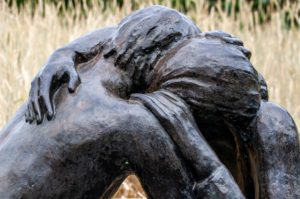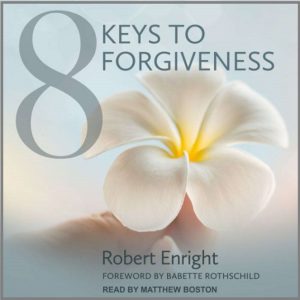Tagged: “family”
Should we use different words for “student loan forgiveness”?

Image by Pexels.com
In perusing the Internet recently, I frequently read the term “student loan forgiveness”…….again and again…….and again. Setting aside the differences of opinion of whether or not this is a good idea, my point here is to suggest that the term should change. There is a large difference between legal pardon and forgiveness. Legal pardon is not a moral virtue. The one who pardons the loans is not the one who was offended by the loaner. Forgiveness, as a moral virtue, in contrast, is concerned with reaching out to those who have been unfair and hurtful toward the forgiver. Given these distinctions, let us make a turn and refer to the loan issue as “student loan pardon.” Why? It is for this reason: Forgiveness already is misunderstood by many. For example, forgiveness can be erroneously associated with “just giving in” or “letting the hurt go.” If we now equate forgiveness with third-party people taking debt away, we are continuing to move away from the true meanings of the word forgiveness. Let us correct this. Student loan pardon needs to be the new term.
‘Racialized’ Forgiveness?
An author, Myisha Cherry, in the journal, Hypatia in 2021, made the claim that under certain circumstances, forgiveness becomes “racialized.” In her words in that article:
“Cases that exemplify certain conditions that I take as paradigmatic of the problem of racialized forgiveness includes instances in which: A. Who is forgiven or not is (overtly or tacitly) determined by the race of the offender. B. Praise and criticisms of forgiveness are determined by the race of the victim. C. Praise and criticisms of forgiveness are, at least implicitly, racially self-serving.”

Image from Pexels.com
Yet, we would have preferred that the two words, “racialized” and “forgiveness” were not put together because there are no such aspects of true forgiveness. A more appropriate pairing of words would be “racialized pseudo-forgiveness” or “racialized false forgiveness” because that is what is happening. Aristotle reminded us that any moral virtue is bounded by two vices, one which is an under-representation (for example, in the case of forgiveness the person exhibits moral weakness in which others dominate the one who is trying to forgive) and one that is an excess of the virtue (in the case of forgiving, the one who supposedly forgives is actually using forgiveness as a weapon to dominate others). “Racialized false forgiveness” actually is a vice, not a moral virtue, in which the person uses forgiveness to dominate others. This, of course, is not forgiveness at all and it should be recognized as such. To equate “racialized forgiveness” with the true form of forgiveness is philosophically incorrect. Dr. Cherry has a book-length work (Failures of Forgiveness, 2023) in which she continues with these ideas. It is good that she is pointing out this excess of forgiveness, but in the future, this needs to be classified not as the moral virtue of forgiveness but as a distortion of it.
‘Psychology Today’ features Dr. Enright story on becoming proficient in forgiveness!

Image by Pexels.com
Dr. Enright is a regular blog writer for the national magazine, Psychology Today. On Wednesday, May 22, his most recent blog entitled, ‘Growing Proficient in Forgiving: Practice Small Acts of Love’, was featured as the “banner story at the top of the site,” which is similar to being the cover story in a magazine.
Check out the essay by clicking this link!
Why You Cannot Always Trust the Scientific Data on Forgiveness
When I teach a graduate seminar on the psychology of forgiveness at the University of Wisconsin-Madison, we as a class frequently read scientific studies with the word “forgiveness” in the title and then we commence critiquing the science that is reported. Too often, we find that what is supposed to pass for forgiveness actually is quite suspect and the conclusions should not be taken at face value. For example, when we forgive, we do so toward persons, not situations. To forgive is to willingly decide to be good to those who have not been good to the forgiver. The one who forgives has been treated unjustly by a person or persons and tries to reduce negative thoughts, feelings, and behaviors and increase positive thoughts, feelings, and behaviors toward the offending person. Forgiveness does not mean to excuse, to necessarily forget, to necessarily reconcile, or to abandon justice. So, if a scientist, as an example, has a scale of “forgiveness” that asks the participants if they forgive situations (not persons, but situations), then this researcher is not studying forgiveness at all in this context, regardless of how many times the word is used.

Image by Pexels.com
In this essay, I want to critique one study (out of four in the article mentioned below) which appeared in this published paper:
Luchies, Laura B. and Eli J. Finkel, James K. McNulty and Madoka Kumashiro, “The Doormat Effect: When Forgiveness Erodes Self-Respect and Self-Concept Clarity,” Journal of Personality and Social Psychology (2010), vol.98, no. 5, 734-749.
In their first study of the paper, they presented a “forgiveness” scale to newly married couples. The researchers continued to assess the couples in forgiveness, self-respect, and the degree to which each member of the couple showed “agreeableness” toward one another. The assessments lasted for five years and the conclusions by the authors are as follows:
“For participants who tend to forgive their spouse, the trajectory of self-respect over time depended on the spouse’s level of agreeableness…….The doormat effect subhypothesis was fully supported in that, for high forgiveness individuals whose spouse was low in agreeableness, greater forgiveness predicted significantly diminished self-respect over time.”
In other words, beware of forgiving unless the one you are forgiving has an agreeableness with you. Otherwise, you tend to devalue yourself and so forgiveness is dangerous.
Here is a critique of that study, that should give the reader of it pause in accepting the conclusions:
The forgiveness scale had nothing to do with actually forgiving the spouse because there were five vignettes that were made up. These were hypothetical situations that did not necessarily occur within the marriage, such as “failing to mail some important papers for the self, making a mess of the house.” There are two problems here: 1) The researchers were not assessing actual offenses and so there was no true construct of forgiveness toward the spouse being measured and 2) there were only five made-up stories and as you can see in the two examples above, they hardly constituted major violation of ethics for the most part.
The most serious problem in this study is the fact that the researchers never discerned what each participant meant by the word “forgiveness.” Some of the participants probably, when asked, would have said that to forgive is to “just let the incident go.” Others might have said that to forgive is to see the justification for what happened, so it really was not an injustice at all because of an extenuating circumstance. We, as the readers, just have no idea what each person means by the word “forgiveness,” so we cannot be sure if each participant was answering the questionnaire correctly. Even if many were answering it correctly, we still need to remember that these are made-up scenarios, and people may respond very differently to the hypothetical than to the real injustices against them.
Is there a “doormat” effect to forgiveness? If there is, it has yet to be accurately demonstrated. We should not give forgiveness a bad name by ambiguous science.
![]()
Power Versus Love
Current political norms seem to have power as a way to achieve objectives. In light of this, perhaps it is time to revisit the contrast between power and love. The following is an excerpt from the book, 8 Keys to Forgiveness (R. Enright, 2015).
Here are 10 pairs of contrasting statements differentiating between power and love, which may be useful in helping you forgive:
Power says, “Me first.”
Love asks, “How may I serve you today?”
Power manipulates.
Love builds up.
Power exhausts others.
Love refreshes them.
Power is rarely happy in any true sense.
Love understands happiness.
Power is highly rewarded in cultures that worship money.
Love considers money to be a means to an end, not an end itself.
Power steps on others.
Love is a bridge to others’ betterment.
Power wounds—even the one who exerts the power.
Love binds up the wounds, even in the self.
Power is joyless even when it is in control.
Love includes joy.
Power does not understand love.
Love does understand power and is not impressed.
Power see forgiveness as weakness and so resentments might remain.
Love sees forgiveness as a strength and so works to eliminate resentment.
Power rarely lasts because it eventually turns inward, exhausting itself. Look at slavery in the United States, or the supposedly all-powerful “Thousand-Year Reich” of the Nazis, or even the presence of the Berlin Wall, intended to imprison thought, freedom, and persons . . . forever. Love endures even in the face of grave power against it.
![]()



